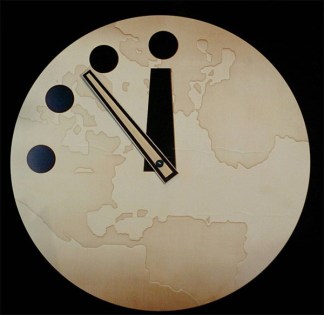Herbert Hoover’s favorite philanthropic endeavor was promoting the Boys’ Clubs of America. He gave this his usual full-bore effort. Hoover embraced the Boys’ Clubs of America mission ‘to enable all young people, especially those who need us most, to reach their full potential as productive, caring and responsible citizens.’ The Boys’ Clubs of America trace … Continue reading Herbert Hoover and Boys’ Clubs of America
Category: Herbert Hoover
Happy Birthday Mr. President
Herbert Hoover celebrated his 80th birthday in his hometown, West Branch, Iowa. It was a celebration of small-town America, a time capsule of the ‘good old days’ when friends and neighbors got together to share life’s big events. Hoover’s birthday party drew on the volunteer efforts of local citizens to cook, organize the parade, and … Continue reading Happy Birthday Mr. President
Charles Michelson’s Campaign Against Herbert Hoover
By Thomas F. Schwartz In many ways, Herbert Hoover represents a transition from a pre-modern presidency to what is more familiar to us as the modern presidency. In the pre-modern presidency, campaigning occurred only in brief periods before an election and not in off years. Press conferences were few and often the press corps were … Continue reading Charles Michelson’s Campaign Against Herbert Hoover
“Show your Heart”: A Reader’s Comment on Hoover’s First Inaugural Address
By Thomas F. Schwartz As has been mentioned in previous blog posts, Herbert Hoover was the last president to write complete drafts of all his speeches. He welcomed comments from individuals whose insights he trusted although he did not always incorporate their suggestions. Following his election in 1928 and in advance of his March 4, … Continue reading “Show your Heart”: A Reader’s Comment on Hoover’s First Inaugural Address
Federal Home Loan Banks
by Spencer Howard Economists are still divided about what caused the Great Depression, and what turned a relatively mild downturn into a decade long nightmare. One contributing problem was that the United States had too many small banks (branch banking was illegal at that time), and many banks made risky loans during the late 1920s. … Continue reading Federal Home Loan Banks
Herbert Hoover on the Kings of Belgium
On May 28, 1959, Herbert Hoover gave the keynote at a dinner honoring the King of Belgium. Given that his ties to Belgium dated back to the early days of World War I, Hoover was the natural candidate to give this speech. In October 1914, Hoover was called upon to lead famine relief for … Continue reading Herbert Hoover on the Kings of Belgium
Herbert Hoover and the Veterans Administration
by Spencer Howard When Herbert Hoover became President in 1929, the care of America's veterans was one of the nation’s most pressing issues. Three agencies had overlapping jurisdiction over veterans affairs: the Veterans Bureau, the National Home for Disabled Volunteer Soldiers, and the Bureau of Pensions. By the end of the 1920's, the total expenditures … Continue reading Herbert Hoover and the Veterans Administration
‘It’s 11:59 on the Clock of Starvation’
Speaking to an American radio audience just before the German surrender at the end of World War II, Hoover raised important issues for Western Civilization in the post-war world. His main focus was on food availability and security. Hoover observed ‘No peace will be possible in nations that are half well-fed and half starved.’ He … Continue reading ‘It’s 11:59 on the Clock of Starvation’
What’s in a Name? The Saga of the Hoover Dam
by Spencer Howard On September 17, 1930, Secretary of the Interior Ray Lyman Wilbur journeyed to the Nevada desert to drive a silver railroad spike, marking an end and a beginning. The spike commemorated the completion of a railroad from Las Vegas to Black Canyon, which was to be the site of an enormous new … Continue reading What’s in a Name? The Saga of the Hoover Dam
Jan Karski and Herbert Hoover
By Thomas F. Schwartz History, some argue, is the study of ordinary people doing extraordinary things. It is also the study of extraordinary people doing seemingly impossible things. Jan Karski is an example of the latter. A Polish diplomat, Karski was taken prisoner by Soviet military forces during the 1939 invasion by both Nazi Germany … Continue reading Jan Karski and Herbert Hoover










